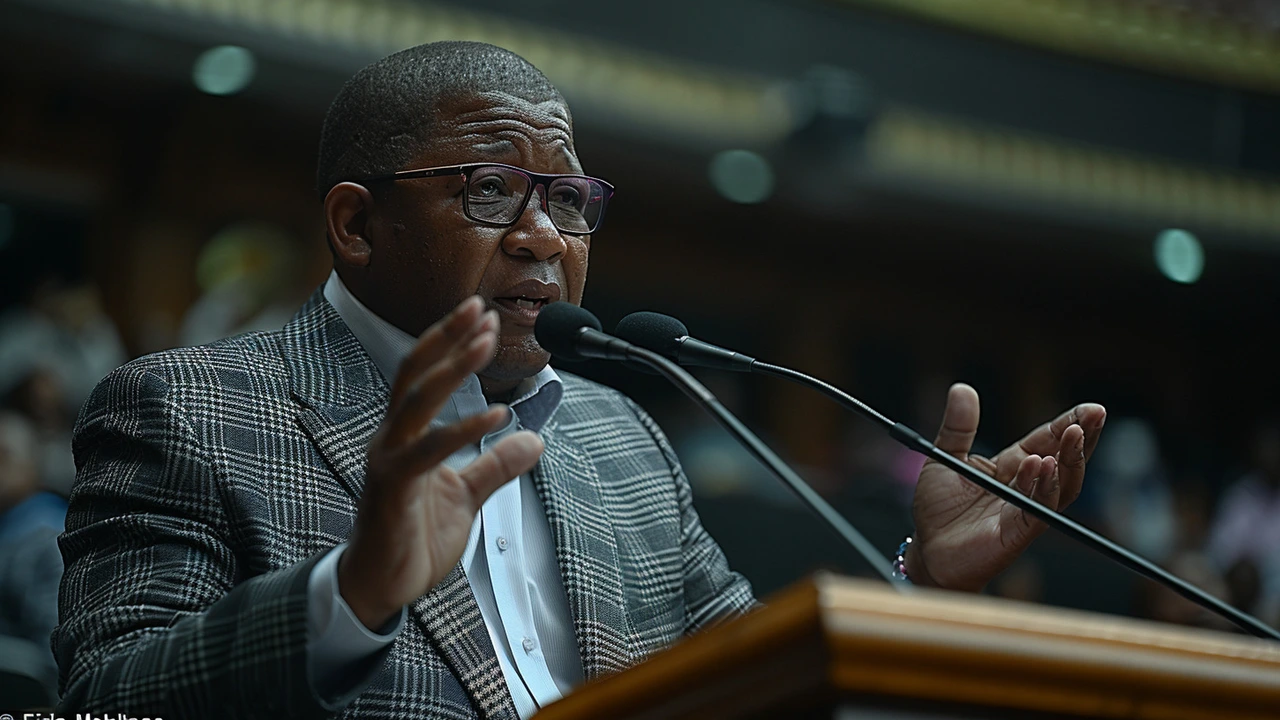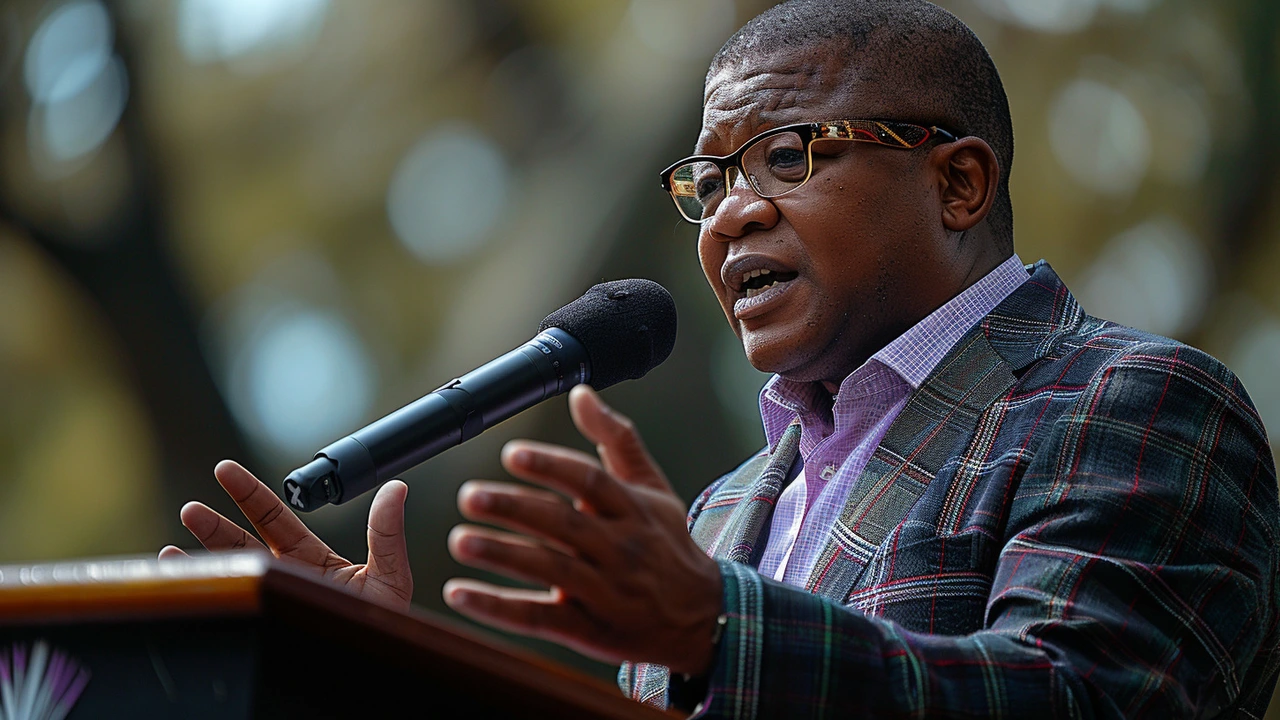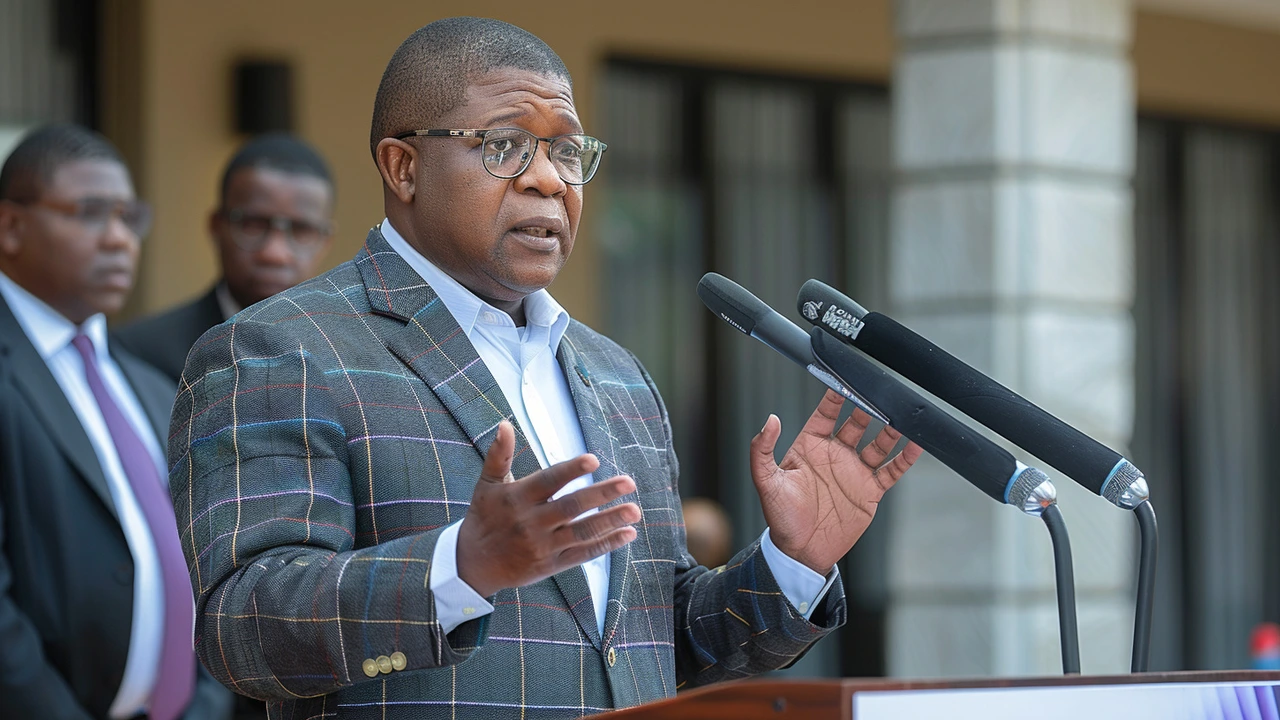AfriForum Pursues Private Prosecution of ANC's Fikile Mbalula Over Dubai Trip Funding
 Jun, 6 2024
Jun, 6 2024
AfriForum Makes Legal Moves Against ANC Secretary-General Fikile Mbalula
The civil rights organization AfriForum has announced its acquisition of the case docket concerning African National Congress (ANC) Secretary-General Fikile Mbalula's controversial family vacation to Dubai in 2016. This significant step by AfriForum's private prosecution unit signals their intention to go ahead with charges of corruption against Mbalula, who was serving as the Sports Minister during the period in question. The contention revolves around alleged irregularities in the financial arrangements for the trip.
The Details Behind the Prosecution
Back in 2016, Mbalula and his family went on a holiday to Dubai, a trip that raised eyebrows due to its funding. It was revealed that a technical supplier to the South African Sports Confederation and Olympic Committee (SASCOC), Sedgars, had provided financial support for the vacation. Mbalula later claimed that the money received from Sedgars was a loan, which immediately sparked suspicions of undue gratification.
These suspicions led to an investigation by the National Prosecuting Authority (NPA). However, in a twist that left many questioning the integrity of the legal process, the NPA decided last year not to pursue the case against Mbalula. Their decision was based on a purported lack of evidence linking him to any criminal activity regarding the financing of the Dubai holiday. This decision by the NPA did not sit well with AfriForum, who has publicly criticized the NPA for what they called selective prosecution.

Barry Bateman's Critique of the NPA's Decision
Barry Bateman, spokesperson for AfriForum, has been vocal in condemning the NPA's decision. Bateman argues that the NPA's refusal to prosecute Mbalula was not based on a fair assessment of the evidence at hand but was rather a manifestation of selective enforcement of the law. According to Bateman, if the money received by Mbalula from Sedgars was indeed a loan, it fits the criteria of gratification and should be treated as such, paralleling other corruption cases in the country.
Bateman draws comparisons between Mbalula's case and that of Zizi Kodwa, another ANC official who is currently facing charges despite claiming that the funds he received were also loans. He points out that the state is moving forward with charges against Kodwa, suggesting a double standard in handling similar cases. By taking on Mbalula's case, AfriForum aims to highlight these inconsistencies and push for a more balanced approach to justice.
Moving Forward with Private Prosecution
With the case docket now in their possession, AfriForum is set on moving forward with private prosecution. This move allows them to take legal action independently of the state, a route that is often pursued when public authorities fail to act. This marks a crucial step for AfriForum in its ongoing efforts to hold government officials accountable for alleged corruption.
Private prosecution is not without its challenges, as it requires robust evidence and a comprehensive grasp of legal intricacies. However, AfriForum remains undeterred. The group believes that pursuing this course of action is essential for upholding the principles of justice and accountability, particularly when public entities like the NPA falter in their duties.

The Broader Implications
AfriForum's decision to prosecute Mbalula privately is more than just a legal maneuver; it stands as a statement against perceived institutional biases within the country's prosecutorial apparatus. By challenging the NPA's decision, AfriForum aims to bring attention to what they see as a pattern of selective prosecution that undermines the rule of law.
This case against Mbalula is likely to stir significant public interest and debate. It brings to the fore issues surrounding corruption, governance, and the integrity of public institutions in South Africa. The outcome of this private prosecution could set a precedent for how similar cases are handled in the future, potentially prompting reforms within the prosecutorial system.
Public trust in governmental and legal institutions is a cornerstone of any functioning democracy. Cases like this, which involve high-ranking officials and allegations of corruption, play a critical role in shaping public perceptions. The transparency and rigor with which these cases are handled can either reinforce or erode public confidence in the justice system. AfriForum's pursuit of this case, therefore, carries with it broader implications for governance and accountability in South Africa.
The Future of Private Prosecutions in South Africa
AfriForum's readiness to prosecute Mbalula privately may well inspire other organizations and individuals to consider private prosecutions as a viable alternative when public institutions fail to act. This could lead to an increase in private legal actions aimed at upholding justice, particularly in high-profile corruption cases.
However, private prosecution also raises questions about the balance of power in the legal system. It underscores the need for a robust and impartial public prosecutorial system that can be trusted to act without bias. While private prosecutions can serve as a necessary check on governmental inaction, they are not a substitute for a fully functional and fair public prosecution service.
The case against Fikile Mbalula thus serves as a litmus test for both the efficacy of private prosecutions and the integrity of South Africa's public legal institutions. As this story unfolds, it will be closely watched by observers both within the country and internationally, for what it reveals about the state of justice and accountability in South Africa.

Ghanshyam Kushwaha
June 6, 2024 AT 19:10they all steal the money and then act surprised when someone calls them out
why even bother
eliana levi
June 7, 2024 AT 18:59Thank you, AfriForum, for not giving up!
Brittany Jones
June 9, 2024 AT 00:33the same NPA that let a dozen other officials slide is now being accused of being biased
but when a private group steps in they're the heroes?
oh please
you're just replacing one kind of corruption with another
and calling it justice
SUBHANKAR DAS
June 9, 2024 AT 13:30what about the other parties
they steal too
why is it only them
and why does this group even exist
they act like they care but they just want attention
and now they want to be the judge too
its too much
Secret Lands Farm
June 11, 2024 AT 05:33private prosecution isn't perfect but it's a tool when the system breaks down
and honestly if the NPA can't or won't act on clear patterns of questionable loans disguised as gifts then yes
someone has to step in
it's not about targeting one person
it's about saying the rules apply to everyone
even the powerful
and if this sets a precedent that makes future leaders think twice
then it's worth it